A talk by See Huang Lim, missionary at IBF church.
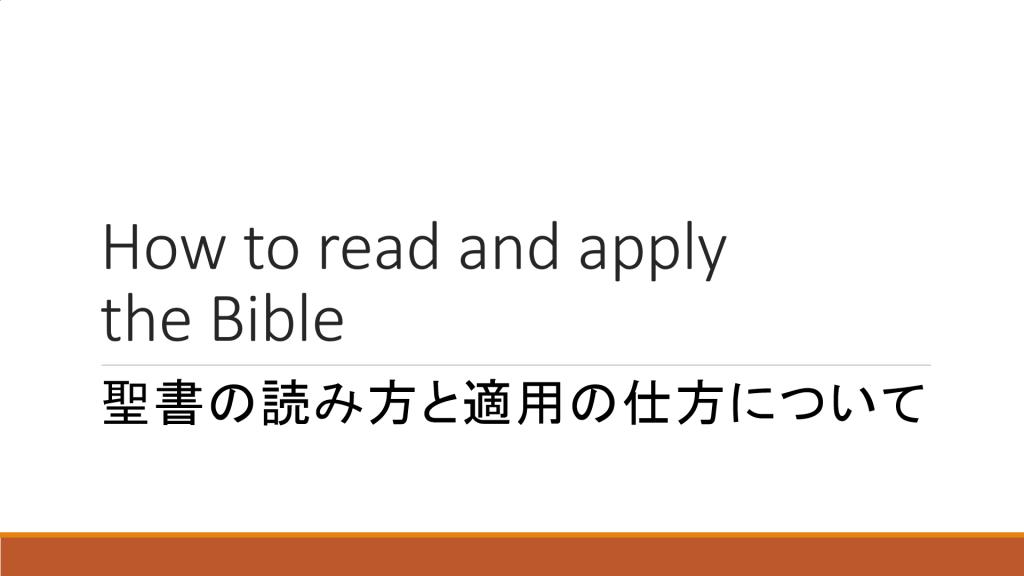
Two weeks ago, I shared about how God spoke to me through the Bible. I was 15 and not yet a Christian. After asking God for help, I opened the Bible at random and my eyes fell on Psalm 27. The words spoke perfectly to my situation, and this made me start to believe in God. But you may wonder if this is a reliable method for hearing God’s voice, especially during your daily Bible reading.
Imagine a man believes is searching for God’s will using this method. One day, he opens his Bible and his eyes fall on the verse “Judas hung himself.” Oh dear… what is God saying here? Imagine the man looks for confirmation by opening another page at random. His eyes fall on this verse: “Go and do likewise.”
Although this story sounds silly, there may be people who use the Bible in this manner as a kind of fortune-telling device. But if the Bible is one of God’s ways to speak to humankind, how do we read and understand it correctly? And, how do we apply it to our daily life?
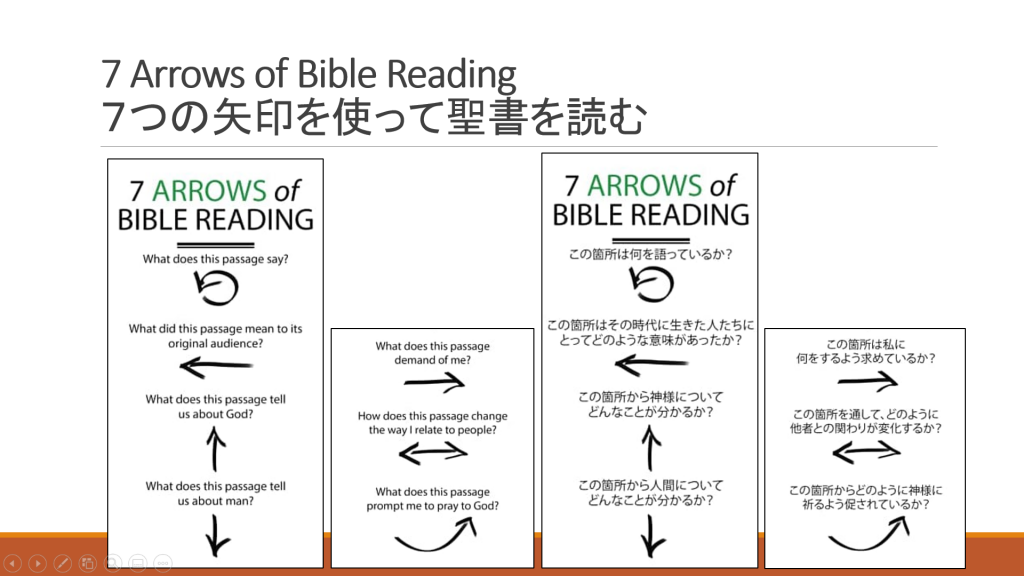
Today, I want to share 7 questions that can help us read and apply the Bible. I recently came across these Seven Arrows of Bible Reading (by Matt Rogers and Donny Mathis). It’s a useful visual aid, so I’ve made it into bookmarks for you to take home.
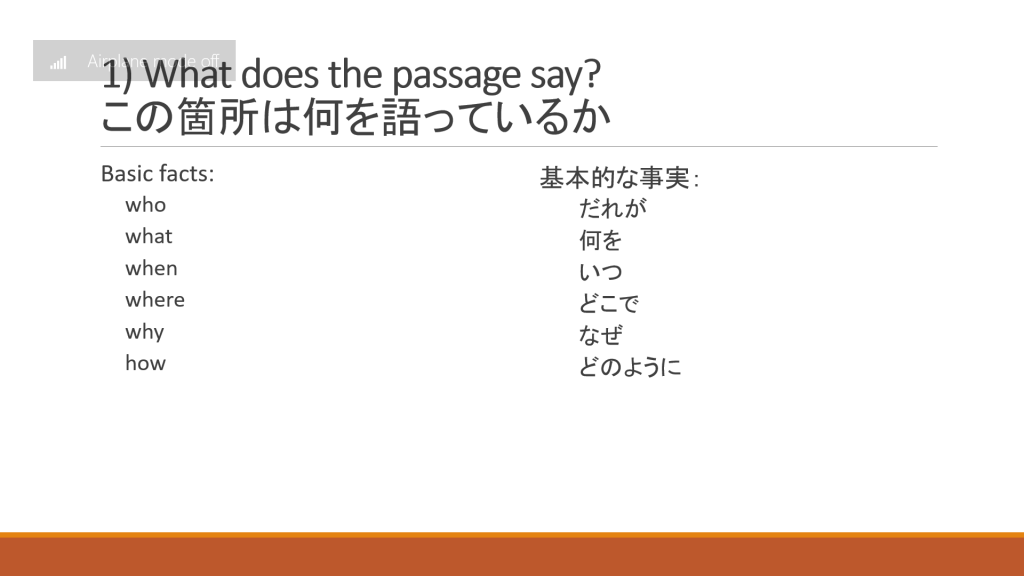
Question 1: What does the passage say?
The first step in reading the Bible is to ask: What does the passage say? We look for basic facts, like how a journalist gathers info for a news report: “who, what, where, when, why, how.”
For example: If you read the story in Gospel of John chapter 3, you can observe a few things: First, it’s about Jesus and Nicodemus talking secretly at night.

Often, you need to read the previous chapters and the later chapters to better understand the passage. For example, if you read the whole Gospel of John, you may guess that this talk happened at night because Nicodemus was afraid of meeting Jesus in public.
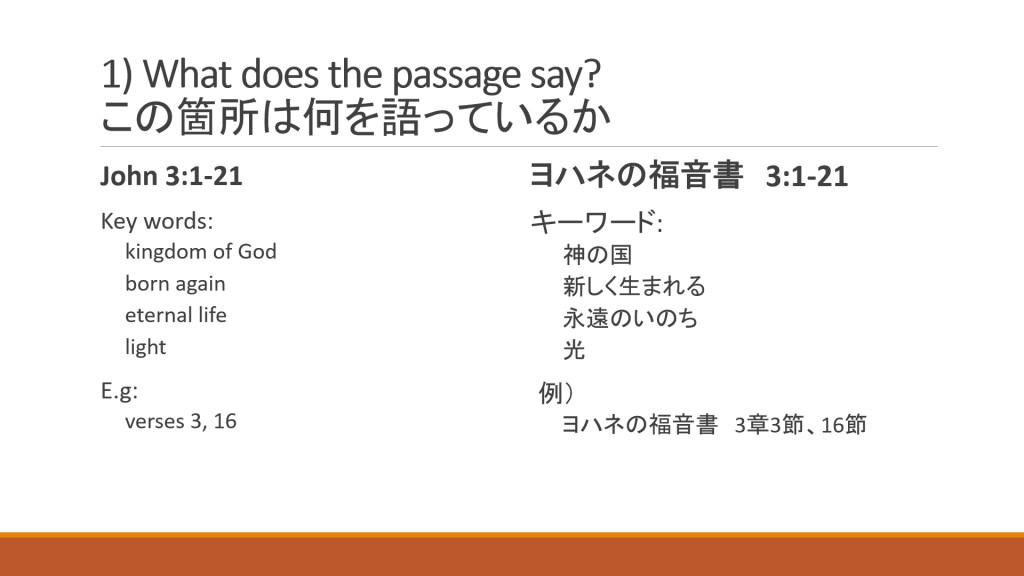
Besides this, look for important themes or repeated key words in the passage. For example, in John 3, here are some words that Jesus repeats a lot. When you read the whole Gospel of John, you will realize they are important themes in Jesus’ teaching.
Reading other chapters will confirm that John 3 contains some of Jesus’s key teachings. For example, verse 3: “no one can see the kingdom of God unless they are born again.” Or verse 16: “… whoever believes in [the Son] shall not perish but have eternal life.”
This is why it’s so rewarding to re-read parts of the Bible. Later in life, you may see new things in a passage that you were not aware of earlier.
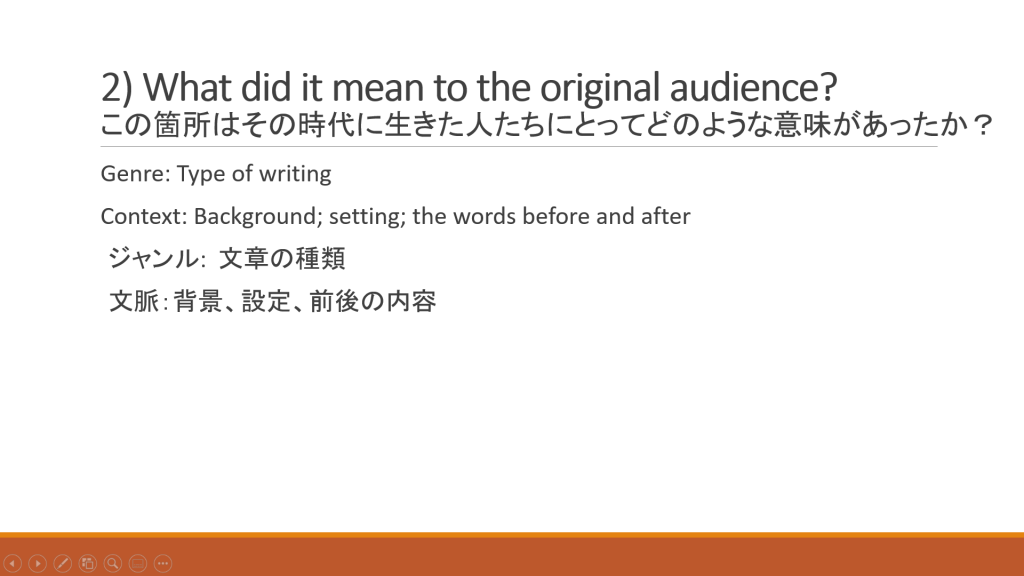
Question 2: What did this passage mean to its original audience?
Before asking how the passage is relevant to my life today, I should first ask, “What did it mean to the original audience?”
To answer this, we should be aware of the passage’s genre and context. Genre and context determine how we understand the passage and later apply it to our lives.
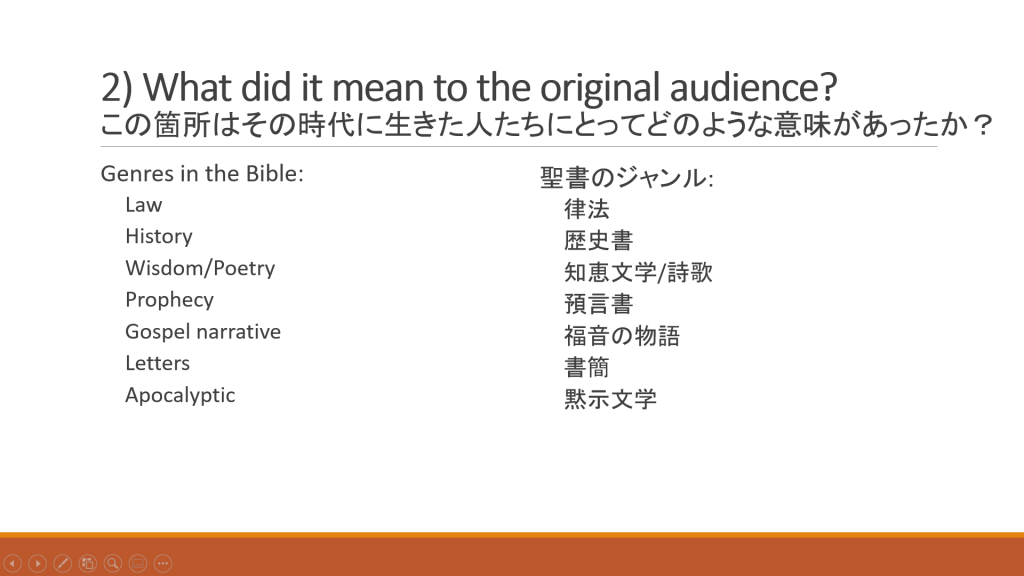
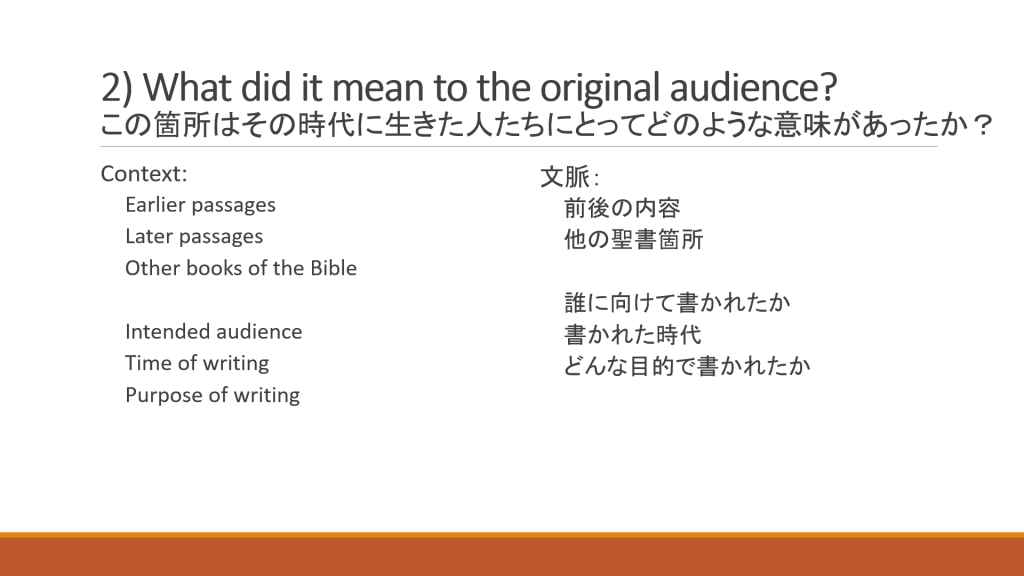
For genre, ask: Is this history? Is this a letter? A poem? A record of prophecy?
For context: I already mentioned that you can understand a passage better if you know the context. Context includes what was said in earlier and later passages; what is said in other books of the Bible; the original audience, time of writing, and purpose of writing.
Let’s look at this popular verse as an example, Jeremiah 29:11. If you read it in isolation, it simply promises that God will give you a good future—that’s why Christians like to memorize and quote this verse. But if you know the context of this verse, its meaning is much richer.
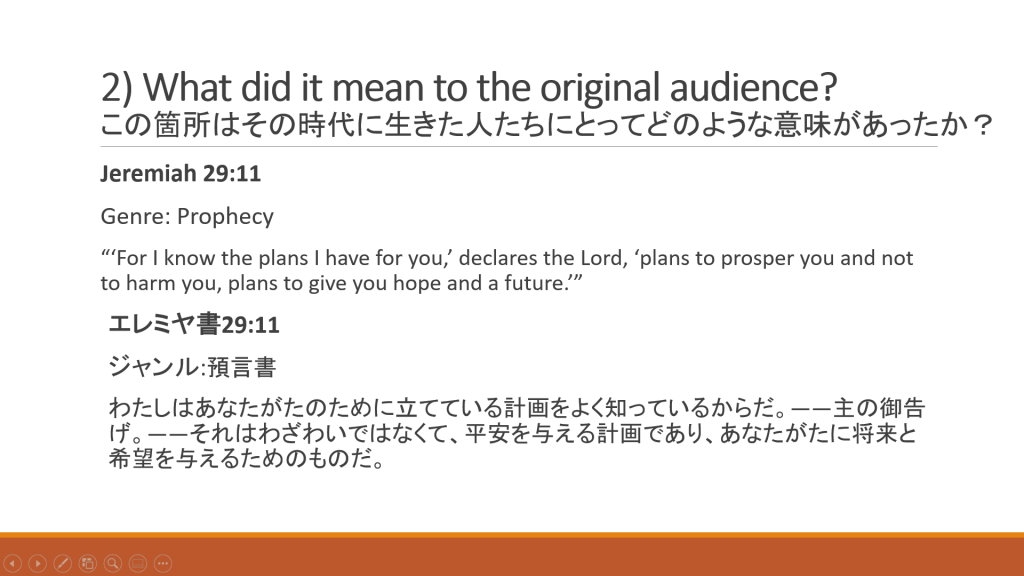
Originally, God was not speaking to you or me, but to Jewish people who had been exiled to Babylon around 6th century BC. We know this from the previous verse, which says the Jews will be exiled for 70 years before God brings them home. The next few verses say that God will listen to the Jews if they seek him wholeheartedly and repent of their sins.
So, the context tells us that this about God’s redemption of a sinful people and he is making them holy through hardship. Without the context, all we see is the promise of a prosperous future in verse 11. We don’t see the parts about punishment, sin, and repentance.
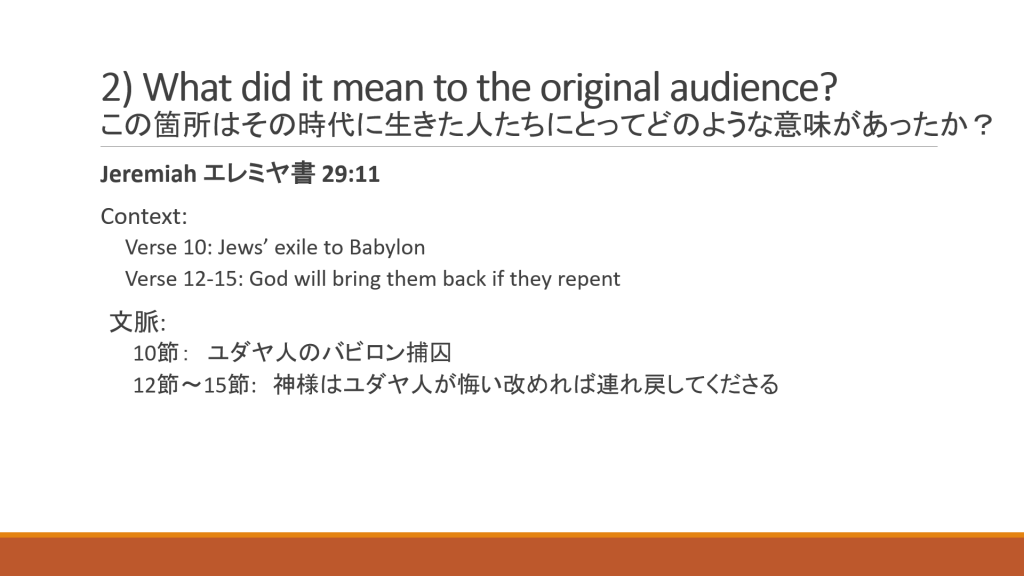
But now that we know what it meant to the Jews, we can better apply it to ourselves. This leads me to questions 3 and 4: What does the passage tell us about God and man?
Questions 3 & 4: What did the passage tell us about God? and man?
With the Jeremiah verse, now I can say: “God seems to desire a good future for his people. He also wants a relationship with them. He wants them to repent when they sin. Sometimes, God leads his people to this outcome by letting them go through hardship first.”
Going back to the John 3 passage, what can we learn about God and man? Well, from John 3:16, we learn that God loves the world. God has a Son. Man will not die if he believes in the Son.
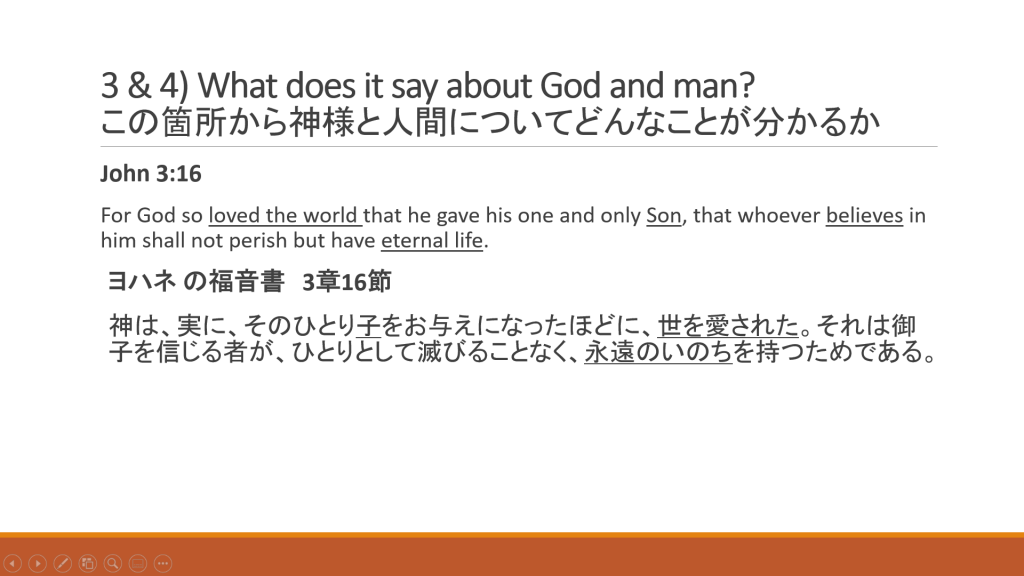
The Bible is our key source of information about life on Earth and life afterwards. The nature of life depends on how God, the Creator, designed life to be. If we learn more about our Creator and his purpose for us, we are better equipped to live according to our original design.
There are times you may feel the Bible is not relevant to your immediate life. That’s because Bible is not just a manual for daily life. It’s first and foremost God’s grand story about his role in human history. Every page in the Bible is relevant to that overarching story.
When you read a passage, ask: How does this fit into the Bible’s overall plot? The plot has 4 main parts: creation, fall, redemption, and consummation.
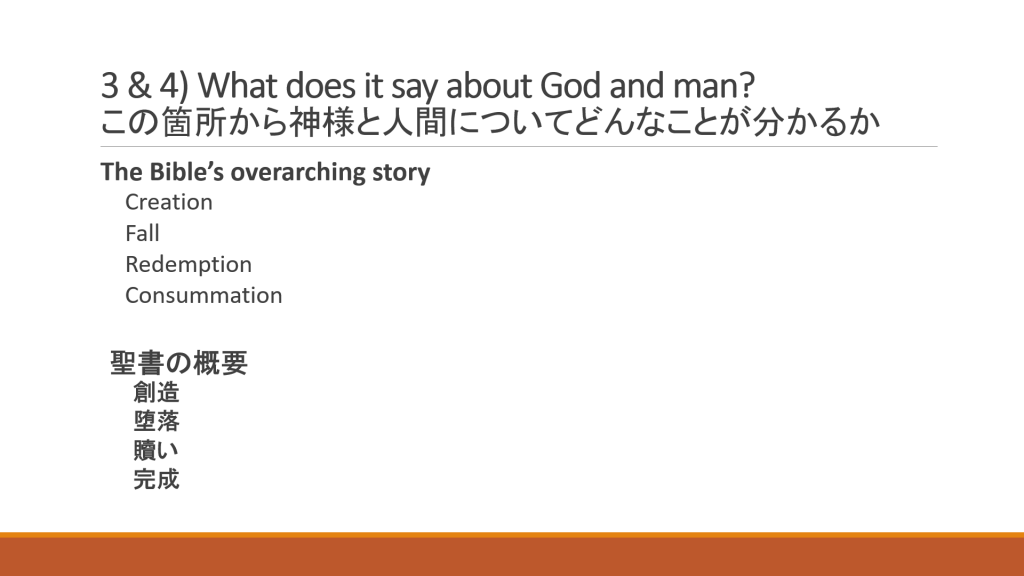
God originally created the world to be a beautiful and good place. But because of human rebellion, sin entered the world and marred its beauty. Yet, God is redeeming humankind through a savior called Jesus Christ, his Son. One day, we will be fully restored in our relationship with God. The Bible depicts this relationship to be like a marriage. “Consummation” means has two meanings in English. First, “fulfillment”. Second, the act of sex between husband and wife which makes a marriage officially binding.
Lastly, be aware that the Bible’s story is largely connected with the story of Israel’s history. For that reason, learning about Israel’s ancient history is relevant and useful for understanding God’s will today. It’s beautiful when you see the pieces fit together.
The Importance of Questions 1 to 4
Before tackling the last 3 questions, I want to reiterate the importance of questions 1 to 4. If we ignore these questions and jump straight to application, we may miss the bigger picture of what God is trying to say.
For example, let’s look at another popular verse, Philippians 4:13. This verse is sometimes misapplied in sports competitions, where Christians use it as a promise of victory. But the writer, Apostle Paul, did not intend for his letter to be used this.
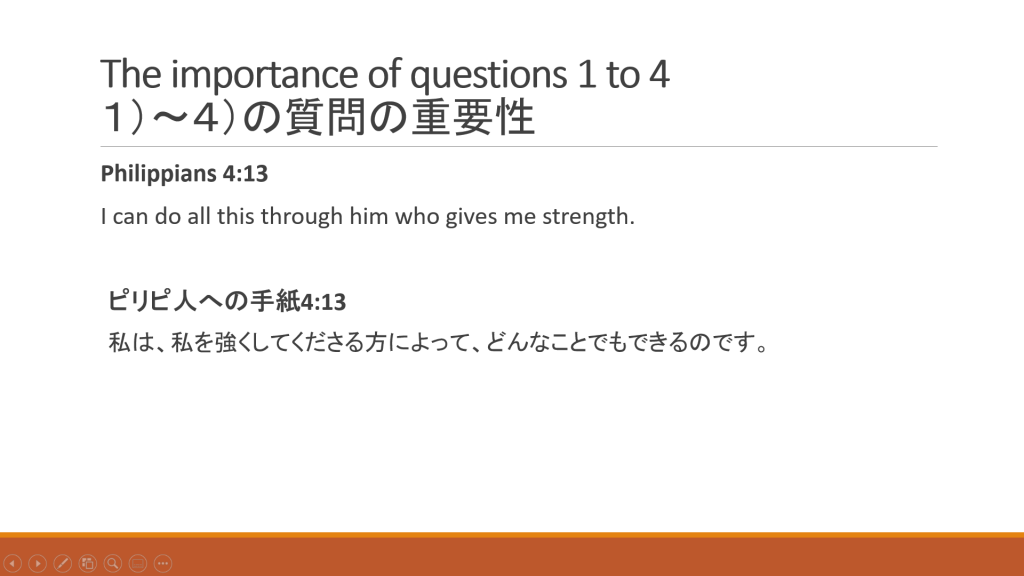
Continuing from verse 14: “Yet it was good of you to share in my troubles. Moreover, as you Philippians know, in the early days of your acquaintance with the gospel, when I set out from Macedonia, not one church shared with me in the matter of giving and receiving, except you only; for even when I was in Thessalonica, you sent me aid more than once when I was in need. Not that I desire your gifts; what I desire is that more be credited to your account. I have received full payment and have more than enough. I am amply supplied, now that I have received from Epaphroditus the gifts you sent. They are a fragrant offering, an acceptable sacrifice, pleasing to God. And my God will meet all your needs according to the riches of his glory in Christ Jesus.”
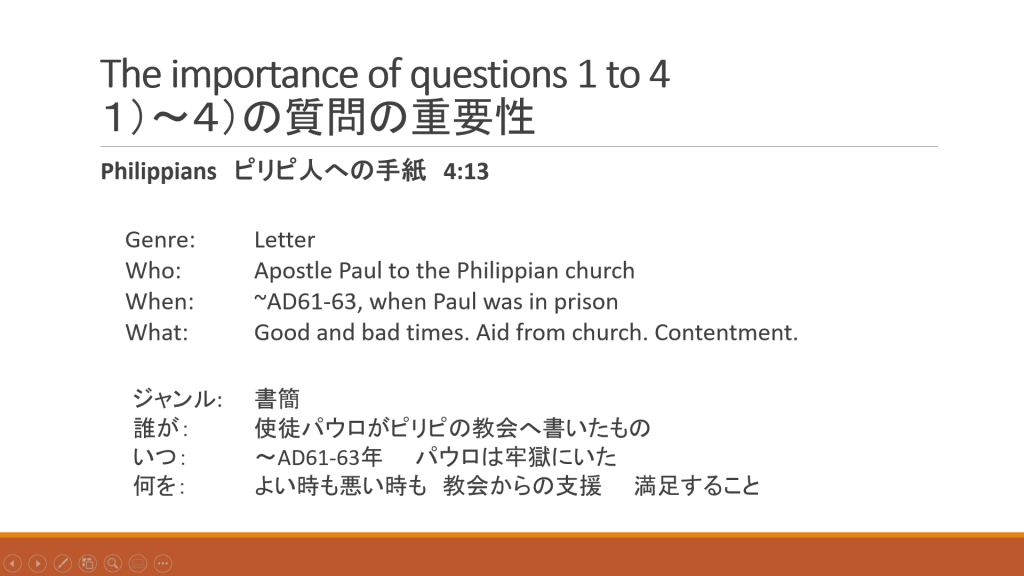
In other words, Paul was writing about very specific events during his time. He reported experiencing both good and bad times. He said the Philippian church had given him some aid—perhaps financial support—which helped alleviate his troubles. In the midst of this hardship, Paul boldly claims, “I can do all this through him who gives me strength.” He is able to find contentment, no matter his situation.
So what does the passage say about God and man? Perhaps, we can say that God’s people sometimes go through hardship. But he uses people to help each other. And, they can find strength in God to be contented, no matter their situation—poor or rich.
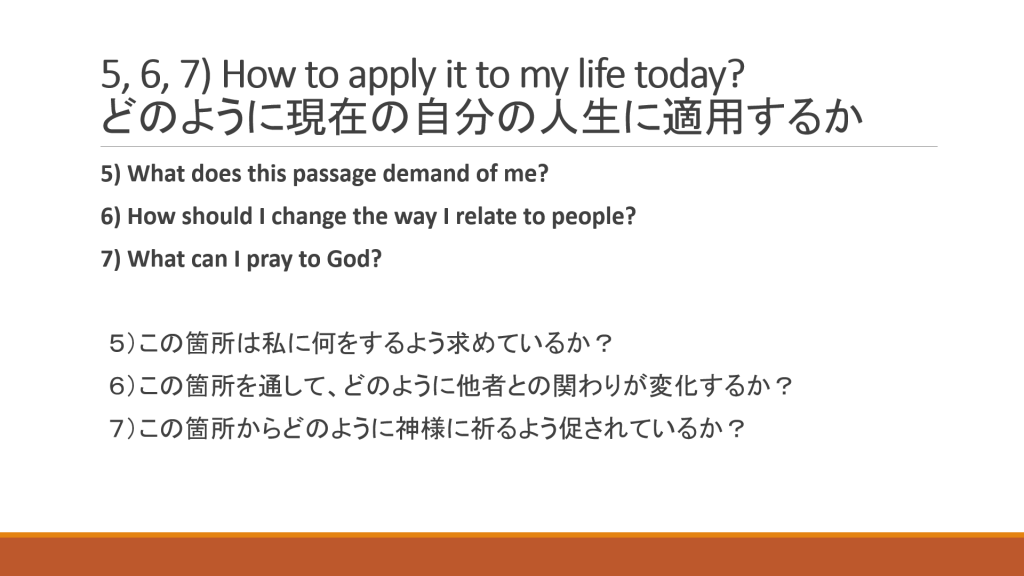
Questions 5, 6 & 7: What does this passage demand of me? How does the passage change the way I relate to people? What does this passage prompt me to pray to God?
Let’s end with the last 3 questions. These questions help me consider how to apply a passage to my life today.
How should we apply Philippians 4:13? I suggest that we find a parallel between Paul’s situation and our life. In this case, since Paul talked contentment during hardship, I will try to find that parallel in my life.
Using questions 5 to 7, I would try to recognize what hardships and discontentment I am going through, and what God may want me to do. I would ask how it affects my relationships with people. Lastly, I will think about what to say to God in prayer.
For example, I sometimes feel discontented about my life situation as a missionary. I feel envy towards my friends in Malaysia who have a normal job with stable income. But I also recognize that God has provided abundantly for me, so I should remember that. If I stop envying my friends, I can recognize that they have their own needs and difficulties. This leads me to pray for their needs. And to ask for God’s help to be contented and trust his provision.
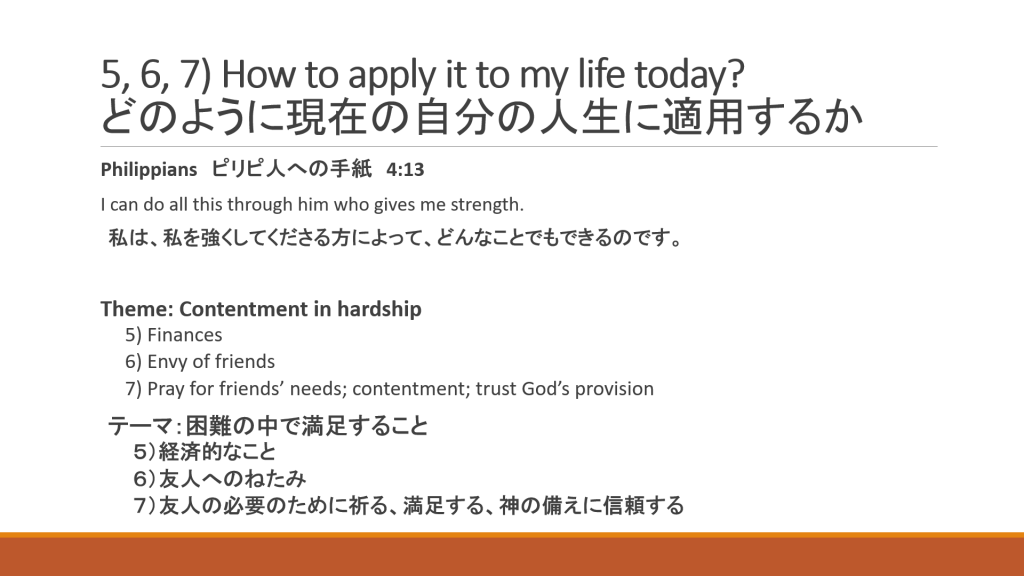
Conclusion
In conclusion, I hope this gives you an idea of how to read and apply a passage.
If you are new to Christianity, I suggest you start by reading the four Gospel stories about Jesus’s life and teachings.
What should you do if you encounter verses that are difficult to understand or apply? For example, in the Old Testament, Deuteronomy 13:15 says: “you must certainly put to the sword all who live in that town. You must destroy it completely, both its people and its livestock.” Is that license for God’s people to kill?
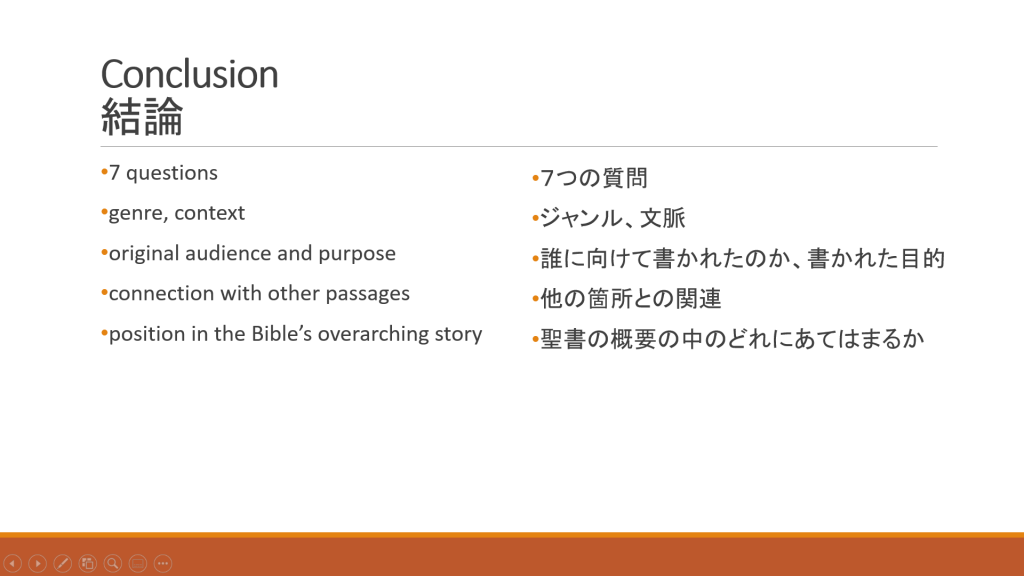
Remember what we have learned: Check the genre and the context. Identify the original audience and purpose. How does it relate to other parts of the Bible? How does it fit in the Bible’s overarching story?
Sometimes, it’s helpful to read commentaries or guides written by Bible scholars. If you’re an English speaker, here are two books I recommend. The first book (How to Read the Bible for All Its Worth by Stuart & Fee) is about general principles for interpreting the Bible. It deals with questions like, “Is this verse only relevant for people in the past, or also for Christians today?” It has been translated to Japanese.
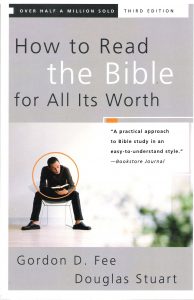
The second book (How to Read the Bible Book by Book by Stuart & Fee) has a short commentary on the Bible’s 66 books, giving you the background, outline, main message of each book.

Understanding the Bible is an ongoing, lifelong process, and there’s always something new we can learn. It’s not just an exercise for the mind but also meant to be lived out in action. I pray we will all dig deep to find treasures in God’s Word.




